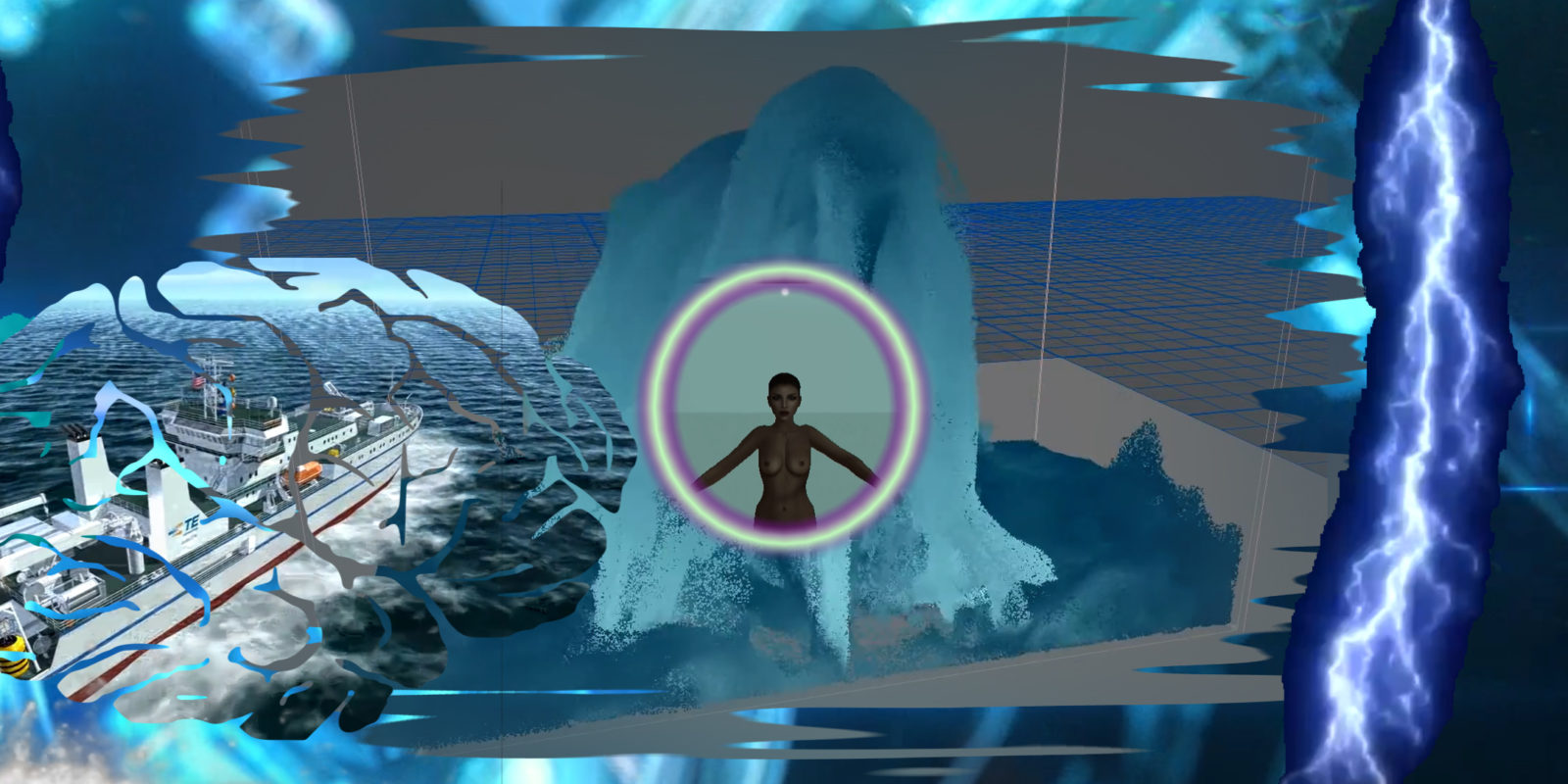Tabita Rezaire: ›Deep Down Tidal‹
In ›Deep Down Tidal‹ (2017), Tabita Rezaire investigates the ocean as the location and medium of colonialist and neo-colonialist power structures. The film revolves around the theory of ›electronic colonialism‹, which explains the Western domination over digital technologies as a strategy pursued by post-industrial countries to enforce their power over the rest of the world. Through an assemblage of cosmic forms, human bodies, and distorted tele-communications, Tabita Rezaire’s visual narrative shows how, in the contemporary era, the battleground of the colonizers has shifted from the physical land to the digital arena.
Electronic colonialism seeks to subjugate the mind, rather than the land, of ›the other‹ by imposing a Western-centric epistemological model. This model is both vehicle and embodied by the internet technology: the deep sea transpors digital data through submarine fibre optic cables that re-trace the older colonial routes of slave trade trade, in what the artist labels as an ›architecture of violence and oppression‹. ›Our water is traumatized›, says the script rolling in bold on the screen.
From fibre optic cables to sunken cities, from drowned bodies to hidden histories of navigation, the ocean of ›Deep Down Tidal‹ becomes the stage of a complex set of networks carrying cosmological, spiritual, political, and technological meanings.
Through a collage of computer generated images, screen–recordings, google search queries, pop icon, and filmed footage, Tabita Rezaire’s documentary urges the viewers to critically engage with the cultural, political and environmental forces shaping our technology. At the same time, it suggests that water, an element endowed with therapeutic and generative properties, can also become a locus of healing: dancing, singing and praying on and for the ocean, as shown at the end of the film, is an ancestral way to re-connect to the bountiful energies of the primordial water.
